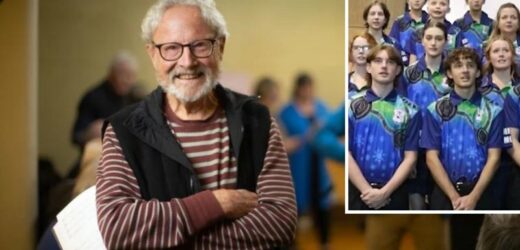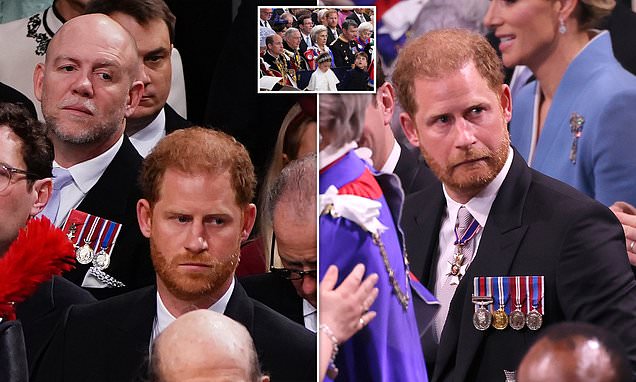Save articles for later
Add articles to your saved list and come back to them any time.
John Fisher was 28 years old when he voted in 1967, in Australia’s most successful referendum to include Aboriginal people in the census and allow the Commonwealth to create laws for them.
Fisher, 86, recalls the moment largely as “a non-issue”. He says he was not active in the campaign in the lead-up to the referendum, which attracted a 90.77 per cent Yes vote, simply believing it was “obviously, the sensible thing to do, and the right thing to do.”
But this year, the octogenarian is on the front foot when it comes to supporting an enshrined Indigenous Voice to parliament.
Fisher will add his own voice – a bass in the Victorian Trade Union Choir – to the Voices For Generations project.
Around 400 choirs around Australia are involved in the initiative, coming together – in some cases for the very first time – to sing the cultural anthem From Little Things Big Things Grow by Paul Kelly and Kev Carmody. Their performances will be shared by Reconciliation Australia as part of National Reconciliation Week.
The project has attracted submissions from disability groups, LGBQTI+, faith-based and culturally and linguistically diverse choirs from across the country. Among them is the Djinama Yilaga Choir, an intergenerational Yuin choir from the NSW South Coast, a choir from the Bandyup Women’s Prison in Perth and a first-time choir from Marymount College in Burleigh Waters, Queensland.
John Fisher sings in the Victorian Trade Union Choir.Credit: Simon Schluter
Marymount College choir co-captain Windsor Hill, 17, says she didn’t think about the project’s connection to the Indigenous Voice referendum. For her, the project was about raising awareness of the First Nations presence and cultures at the school.
“Other students don’t know enough about mob,” Hill says. “It was getting to do something I love: taking music, my culture, and having a good time with it.”
The choirs themselves are also encouraged to share their performance to social media during the week.
“Reconciliation is an ongoing process, and being involved in this project is a contribution to that long process, with a real focus this year on supporting the Yes vote,” Fisher says.
Choir master Libby Barry during practice at Trades Hall.Credit: Simon Schluter
“It shouldn’t have to be Aboriginal people doing all the work when it comes to these important national matters.”
Fisher’s fellow chorister, Libby Barry, 66, is likewise contributing her alto voice to reconciliation and the Yes vote.
Barry says the choir was a proponent for the Voice and the other aspects of the Uluru Statement from the Heart “well before” the group got word from the union movement about its backing of the Yes campaign. Besides, contributing to the project had brought the choir’s members closer together, Barry says.
“As a non-indigenous choir, we’re trying to find a bridge through the music, and a choir is all about unity.”
The Victorian Trade Union Choir is 33 years old and has about 35 members, with around 20 of those participating in the Voices for Generations project. Michael Roper has directed the choir for 25 years and says the group got involved to demonstrate its support for a Yes vote.
The choir discusses every song brought in, says Roper, and From Little Thing Big Things Grow was strongly endorsed by the group as a powerful union song, in addition to being an important Indigenous activism song. The track’s technical aspects also posed an interesting challenge.
“The song at first seems so simple and so comforting, especially the chorus, which everybody knows and sings along with,” Roper says. “But performing it is so much more complicated.”
Kelly and Carmody have given their support for the initiative. Kelly said he was a big fan of choirs for the same reason he loved being in a band: “You’re making something with other people you couldn’t do by yourself. You’re a vital part of a big organism. Like being on Earth.”
Choir conductor Michael Roper.Credit: Simon Schluter
The song tells the story of the Wave Hill walk-off which began a year before the 1967 referendum, after Gurindji man Vincent Lingiari led a labour strike to protest 40 years of poor conditions experienced by Aboriginal workers at the Lord Vestey-owned cattle station.
The track is an iconic Australian song, which pays tribute to the Gurindji people, and is symbolic of the broader movement for Indigenous equality and land rights in Australia.
The Gurindji strike was instrumental in increasing public awareness of First Nations connection to Country and was a catalyst for the passing of the Aboriginal Land Rights (Northern Territory) Act 1976, the first legislation allowing for a claim of title if the First Nations claimants could provide evidence for their traditional ties to the land.
The Morning Edition newsletter is our guide to the day’s most important and interesting stories, analysis and insights. Sign up here.
Most Viewed in National
From our partners
Source: Read Full Article





